Jewish Studies Collection (10 vols.)
Digital Logos Edition
Overview
Explore Jewish history, traditions, and texts. From the Hebrew Bible, to Pirke Avot, to the Zohar, this collection brings together significant works representing multifaceted traditions. Practical and accessible, each volume provides a contemporary translation and facing-page commentary, inviting readers to understand each text’s wisdom. Gain insight into Moses Maimonides’ teachings, understand Jewish mysticism, and explore Hasidic tales. With this collection, you can study these timeless works with breadth and depth.
Logos lets you study classic texts from across the centuries with unparalleled depth and efficiency. Quickly access information on difficult or unusual words, and get instant definitions, translations, audio pronunciations, and more. Discover new connections with Logos’ Timeline feature.

Key Features
- Provides contemporary translations of significant Jewish texts
- Includes expert annotations and commentary
- Explores different Jewish traditions
Individual Titles
- The Book of Job: Annotated & Explained translated by Donald Kraus
- The Divine Feminine in Biblical Wisdom Literature: Selections Annotated & Explained translated by Rami Shapiro
- Ecclesiastes: Annotated & Explained translated by Rami Shapiro
- Ethics of the Sages: Pirke Avot—Annotated & Explained translated by Rami Shapiro
- Hasidic Tales: Annotated & Explained translated by Rami Shapiro
- The Hebrew Prophets: Selections Annotated & Explained translated by Rami Shapiro
- Maimonides: Essential Teachings on Jewish Faith & Ethics translated by Marc D. Angel
- Proverbs: Annotated & Explained translated by Rami Shapiro
- Tanya, the Masterpiece of Hasidic Wisdom: Selections Annotated & Explained translated by Rami Shapiro
- Zohar: Annotated & Explained translated by Daniel C. Matt
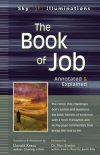
The book of Job often puzzles readers with its unusual dialogue form and unanswered questions. However, even though it was written in a world very different from our own, it raises fundamental questions we still grapple with today: Is living a good life worth it? Does life have a meaning beyond itself? Why do the righteous suffer and the guilty prosper?
In this accessible guide, Donald Kraus, the editor of the Oxford University Press Study Bible program, clarifies the purpose of Job, helps overcome difficulties in the text, and suggests what it may mean for us today. Kraus’ fresh translation captures some of the finest poetry in the Hebrew Bible and uncovers the original author’s intent in a way that is accessible for modern readers.
Donald Kraus is the executive editor for Bibles at Oxford University Press. He is the author of Sex, Sacrifice, Shame, and Smiting: Is the Bible Always Right? and Choosing a Bible. He received his BA in English Language and Literature at Trinity College and studied at Harvard Divinity School.
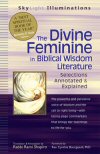
According to Rabbi Rami Shapiro, “Chochma, the Hebrew word for ‘wisdom,’ is the manifestation of the Divine Mother as She appears in the Hebrew Bible. She is the first manifestation of God, the vehicle of His unfolding, the Way of nature. . .”
In this award-winning work, Shaprio translates the Hebrew books of Psalms, Proverbs, Song of Songs, Ecclesiastes, and Job, and the Wisdom literature books of Sirach and the Wisdom of Solomon, showing how they reveal the Divine Feminine.
A “Best Spiritual Book of the Year.” —Spirituality & Practice
Rami Shapiro is an award-winning author of over two dozen books on religion and spirituality. He received rabbinical ordination from the Hebrew Union College-Jewish Institute of Religion, and holds a PhD from Union Graduate School. A congregational rabbi for 20 years, Shapiro currently codirects One River Wisdom School.
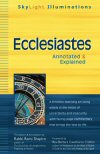
2,300 years ago, an unnamed Hebrew sage known only as Koheleth rocked the ancient Jewish world with a critique of society that shattered conventional notions of God, piety, politics, and power. His teachings, known as the Book of Ecclesiastes, empowered people not unlike ourselves. In this contemporary translation, Rami Shapiro presents the Book of Ecclesiastes as a rational and inspirational guide to living well in the midst of uncertainty.
Rami Shapiro is an award-winning author of over two dozen books on religion and spirituality. He received rabbinical ordination from the Hebrew Union College-Jewish Institute of Religion, and holds a PhD from Union Graduate School. A congregational rabbi for 20 years, Shapiro currently co-directs One River Wisdom School.
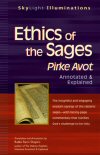
At the heart of Judaism is an ethical imperative to live life from your true self, as the image and likeness of God. This imperative flowers in the words of the early Rabbis (250 BCE–250 CE), who captured God’s call to be holy in Pirke Avot, a collection of sayings on how best to live an ethical life.
This engaging introduction to the wisdom sayings of the rabbinic sages puts you in direct conversation with them. With fresh, contemporary translation and commentary, Rabbi Rami Shapiro focuses on the central themes in this Jewish wisdom compendium—study, kindness, and compassion. He clarifies the rabbinic proverbs and parables in order to expose the ethical principles at their root.
Rami Shapiro is an award-winning author of over two dozen books on religion and spirituality. He received rabbinical ordination from the Hebrew Union College-Jewish Institute of Religion, and holds a PhD from Union Graduate School. A congregational rabbi for 20 years, Shapiro currently co-directs One River Wisdom School.
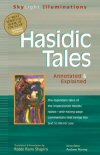
In Hasidic Tales, Rabbi Rami Shapiro breathes new life into these classic stories of the profound and enigmatic spiritual masters from Eastern Europe. Each demonstrates the spiritual power of unabashed joy and offers lessons for leading a holy life. Without an expert guide, the allegorical quality of Hasidic Tales can be perplexing. Shapiro presents them as stories, making them accessible and meaningful.
Rami Shapiro is an award-winning author of over two dozen books on religion and spirituality. He received rabbinical ordination from the Hebrew Union College-Jewish Institute of Religion, and holds a PhD from Union Graduate School. A congregational rabbi for 20 years, Shapiro currently co-directs One River Wisdom School.
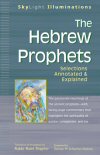
The Hebrew Prophets makes the wisdom of these timeless teachers available to readers of all backgrounds. With fresh, contemporary commentary, Rami Shapiro reveals the central themes covered by all the prophets: moving from ignorance to wisdom, injustice to justice, cruelty to compassion, and despair to joy.
Rami Shapiro is an award-winning author of over two dozen books on religion and spirituality. He received rabbinical ordination from the Hebrew Union College-Jewish Institute of Religion, and holds a PhD from Union Graduate School. A congregational rabbi for 20 years, Shapiro currently co-directs One River Wisdom School.
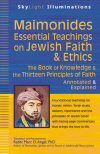
Perhaps no Jewish thinker has had a more significant impact on Jewish religious thought than Moses Maimonides (1138 CE –1204 CE). A medieval philosopher whose vision covered an extensive range, he created a method of mediating between revelation and reason that laid the groundwork for a rational, philosophically sophisticated Judaism. In this accessible examination of Maimonides’ theological and philosophical teachings, Rabbi Marc D. Angel opens up Maimonides’ views on the nature of God, providence, prophecy, free will, human nature, repentance and more. He explores basic concepts of faith that Maimonides posits must serve as the basis for proper religious life. He also examines Maimonides’ insights on reward and punishment, messianic days, the world to come, and other tenets of Jewish faith.
Marc D. Angel (1945–) is founder and director of the Institute for Jewish Ideas and Ideals. Rabbi emeritus of Congregation Shearith Israel of New York City, he is author and editor of 29 books, including Maimonides, Spinoza and Us: Toward an Intellectually Vibrant Judaism; Foundations of Sephardic Spirituality: The Inner Life of Jews of the Ottoman Empire; and Maimonides—Essential Teachings on Jewish Faith and Ethics.
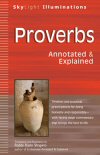
The biblical Book of Proverbs was compiled in the seventh century BCE and credited to King Solomon. In this fresh translation, Rami Shapiro unpacks the book, writing that its wisdom transcends time and place and instructs readers to live simply, without rationalizations and excuses.
Rami Shapiro is an award-winning author of over two dozen books on religion and spirituality. He received rabbinical ordination from the Hebrew Union College-Jewish Institute of Religion, and holds a PhD from Union Graduate School. A congregational rabbi for 20 years, Shapiro currently co-directs One River Wisdom School.
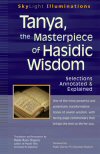
Tanya, “It Was Taught,” is one of the most powerful books of Jewish wisdom. Written in 1797 by Rabbi Schneur Zalman of Liadi, the founder of Chabad Hasidism, Tanya sets forth the fundamentals of Jewish spirituality and mysticism. While a focus of daily study by tens of thousands of Hasidic Jews, Tanya is little known outside the world of Jewish mysticism. Until now, its kabbalistic terms and esoteric language have made this essential text of Jewish spirituality inaccessible to most readers. In this engaging volume, Rabbi Rami Shapiro offers a contemporary English translation of key selections of Tanya coupled with commentary designed to clarify its wisdom.
Rami Shapiro is an award-winning author of over two dozen books on religion and spirituality. He received rabbinical ordination from the Hebrew Union College-Jewish Institute of Religion, and holds a PhD from Union Graduate School. A congregational rabbi for 20 years, Shapiro currently co-directs One River Wisdom School.
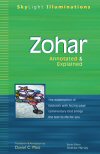
The enigmatic appeal of the Zohar, the major text of the Jewish mystical tradition, intrigues readers of all backgrounds. But how can we truly understand it? In this volume, author Daniel C. Matt brings together the major teachings from the Zohar, the cornerstone of Kabbalah—described as a mixture of theology, mystical psychology, anthropology, myth, and poetry—alongside facing-page stories, notes, and historical background that illuminate and explain the text, making it accessible to all readers.
Daniel C. Matt is the author of The Essential Kabbalah; Zohar: The Book of Enlightenment; God and the Big Bang: Discovering Harmony Between Science and Spirituality; and Zohar: Annotated and Explained.
This title is included in the following collections
You can save when you purchase this product as part of a collection.
SkyLight Paths Illuminations S...
$549.99$439.99Logos 8 Messianic Jewish Plati...
$1,499.99$1,499.99Logos 8 Messianic Jewish Diamo...
$2,999.99$2,999.99Logos 9 Messianic Jewish Diamo...
$2,999.99$2,999.99
- $24,999.99
Reviews
1 rating

Ivey Peters
5/3/2020
Sam Richardson has a good point. Here is some info on Rami Shapiro: "Shapiro moved to Miami, Florida, and created Temple Beth Or, a synagogue and think tank where he experimented with new forms of Jewish liturgy and practice, combining his experiences with Judaism, Buddhism, and Hinduism.[6] He continued his Zen practice with the aid of Gesshin Roshi's International Zen Institute of Miami". I have nothing against a "think tank", but if Shapiro is practicing Zen then I question the validity of his writings.
Sam Richardson
3/1/2015
I'm not quite sure why the decision-makers at Logos decided to offer up a series that is largely by Rami Shapiro. While I have nothing against him personally, as a Jewish academic who actually believes in God (and the covenants, miracles, etc.) I am curious as to why a package of similar subjects written by Jewish authors who come to the table with at least a basic theology of monotheism would not have been offered instead of these volumes. Was it the price? I would be happy to provide some suggestions for alternative authors.